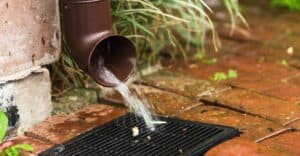Boilers are mainly installed as part of the central heating unit of the house. Boilers are mainly used to heat the house and provide hot water. Boilers use various heating technologies and consume different types of fuels to heat water and to provide heat in the house. These installations heat water to produce steam, which is then dispersed around the house using radiators. When choosing a new boiler for your house, you should always consider the number of occupants, the installation space, the available fuel, the efficiency of the boiler, and the purchase and installation costs of the boiler. You can always consult a professional plumber who offers San Diego water heater services for advice regarding the type of boiler or central heating unit that you should install in your house. Boilers are mainly classified according to their functional design and operation and also according to the fuel that they use. When it comes to fuel types, boilers usually use electricity, gas, oil, and solid fuel like coal, wood, or pellets. Regarding the functional design or operation, you will get three main types of boilers, namely combination/combi boilers, system boilers, and regular/conventional boilers. Boilers are also classified as either condensing or non-condensing boilers based on their energy efficiency. We will now look at the four main types of boilers based on their functional design, operation, and energy efficiency.
Combination/Combi Boilers
Combination or combi boilers earn their name from the fact that they act as double units. They are both water heaters and central heating units. Because of this fact, combi boilers are the most popular boilers in the market today. These boilers heat water directly from the mains and hence do not come with a hot water storage tank or a cold water storage tank. Combi boilers are compact in shape and hence very versatile to install. They take up less space in the house. They are also tankless and hence do not lose heat energy in stored hot water. This makes combi boilers highly efficient and very cost-effective to operate. Combi boilers are also easy, quick, and cheap to buy and install. They provide hot water on demand, which means that you will never run out of hot water with this model. One major disadvantage of combi boilers is that require adequate pressure at the mains to ensure adequate hot water flow rate.
Regular/Conventional Boilers
Unlike the combi boilers discussed above, regular/conventional boilers have two reservoirs; a cold water storage tank and a hot water storage tank. As such, regular boilers are highly inefficient because they suffer from standby heat loss in the heated water. They also take up more space in the house. One advantage of regular boilers is that they produce enough water to furnish simultaneous, multiple hot water needs.
System Boilers
System boilers are just like combi boilers except that they have a hot water storage tank. They produce hot water and heat the central heating system. Because they store hot water, they can produce enough to furnish multiple uses at once. But they also suffer from standby heat loss and are hence quite inefficient.
Condensing Boilers
A condensing boiler is any type of boiler that extracts heat energy from the flue gases that escape after the fuel is burnt. This means that a combi, system, or even regular boiler can also be a condensing boiler if it traps the escaping heat energy and reuses it to heat water and the house. Condensing boilers are highly efficient and very cost-effective.
Following this link will deliver more on San Diego water heater services.

.svg)
